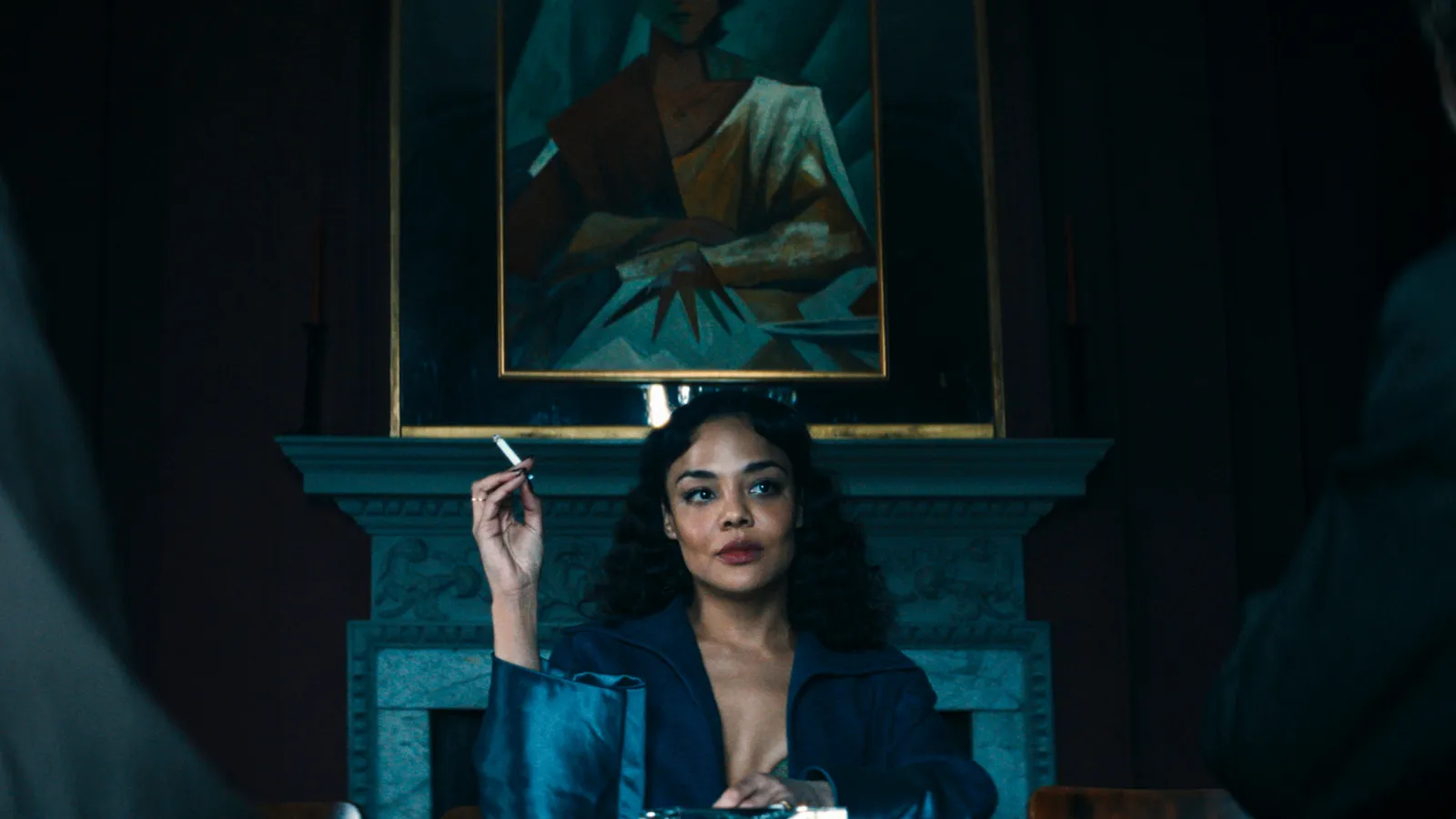Copyright Rolling Stone

Hedda Gabler — you remember her, right? Daughter of a famous general? Recently married to a promising academic yet already a frustrated wife, prone to boredom and depression? Likes destroying lives and stirring up a lot of shit at parties? The title character of Henrik Ibsen’s 1891 play has been one of those theater roles that, like Macbeth or Mama Rose, is designed to test an actor’s mettle. Everyone from Ingrid Bergman to Cate Blanchett has taken a crack at it. Some have found themselves tripping over the psychological minefield of this modern woman trapped in a socially stifling environment. Others have kickstarted careers courtesy of Ms. Gabler. The attempt to leave your stamp on this landmark anti-heroine leaves you in tatters or elevates you to God-tier status. Now Tessa Thompson joins the ranks of thespians, stage veterans, and movie stars who scale this mountain of a part, and you could not accuse her of being timid about tackling it. And tackle is really the appropriate verb here. Hedda is nothing if not a showcase for both the star and her director Nia DaCosta, with the latter setting the drama in 1950s English high society and giving everything a garish, gloriously over-the-top aesthetic that suggests Downton Abbey via Baz Luhrmann. It’s primarily Thompson’s stage on which to rage, however, and she doesn’t reinterpret the role so much as barge into it headfirst, knocking Gabler down as she runs rampant through this playground of country-estate chic. There are moments when you gape in awe at the way Thompson lays claim to the territory, leaving plenty of scars, divaish side-eyes, and debris in her wake. There are also times when you cringe at how this mix of hyperventilating camp and self-conscious revisionism seems to smother any of the behavioral nuances or subtle complexities its star might be trying on for size. But you never doubt it’s her Hedda, and hers alone, for a second. (It drops on Amazon Prime today after a tree-silently-fell-in-the-forest theatrical run.) Editor’s picks The song remains more or less the same as Ibsen’s masterwork, though the overall vibe definitely signals you’re watching Hedda Gabler: The Remix. This version of our doomed protagonist is introduced exiting a pond, with stones dropping from her dripping wet dress — the abyss-adjacent qualities are already in full bloom. She will not be attending a party, but throwing one, with the purpose allegedly being to secure a professorship for her husband, George (Tom Bateman). The real reason is to wreak as much havoc as humanly possible, or at least that’s what we’re given to believe from the way the hostess swans about while deftly manipulating dozens of puppet strings simultaneously. We’ve seen pitiful Gablers, and righteous Gablers, and Advanced Feminist Theory 108 Gablers. Now we get the Joker in a vintage Givenchy gown, an agent of chaos adept at playing Hedda games. She wants to watch the world burn. Guests in attendance for this lavish soirée include George’s fellow intellectuals, a large number of dapper hedonists, the handsome horndog Judge Roland Brack (Nicholas Pinnock) — whose wolf-whistle come-ons are neither fully rebuffed nor reciprocated by Hedda — and Thea (Imogen Poots, wasted). She knew Gabler back in their school days, though you would not have called them friends, and is now crashing the party out of desperation. She’s fallen in love with a writer, which, you know… that’s her first big mistake. Thea has helped the object of her affection finish a manuscript that, once published, will assure this author both literary glory and a spot at the university. The same job, in fact, that George is hoping to secure. Eventually, this wordsmith shows up as well: Eileen Lovberg (Tar‘s Nina Hoss). DaCosta has said that she changed the traditionally male role of Eilert to a female one so that she could have a trio of strong women at the forefront, which also means she’s giving a trio of strong female actors center stage as well. Hedda and Eileen also know each other in the biblical sense as well, which adds another wrinkle to the proceedings. Or, at the very least, is meant to add one — the notion of an extra social stigma regarding this freshly appointed sapphic sisterhood is sorta kinda hinted at, but isn’t what you’d call a plot point. But it does mean that Hoss, whose presence here manages to add electricity and friction to every scene she’s in, provides an equal counterpart for Thompson’s get-in-the-ring performance. Both of them give each other something to play off of. Both of them are perfectly capable of turning sequences that teeter on the edge of bathos into brawls. Trending Stories Related Content Eileen has freshly embraced sobriety, and has brought her manuscript with her in the hopes of impressing several key mucky-mucks in attendance. Thea wants to make sure that her true love stays off the sauce and can accomplish her goals. Hedda has other ideas. Some of them partially involve giving her husband — a man she does not love, but can keep her in the lifestyle she’s accustomed to — the advantage in terms of employment. Others perhaps involve a dish best served cold. Still others have no purpose other than to distract Hedda from an otherwise purposeless life, just ginning up your run-of-the-mill ritualized humiliations that involve see-through garments, booze, inexplicably missing items, and literal guns on the mantle.



